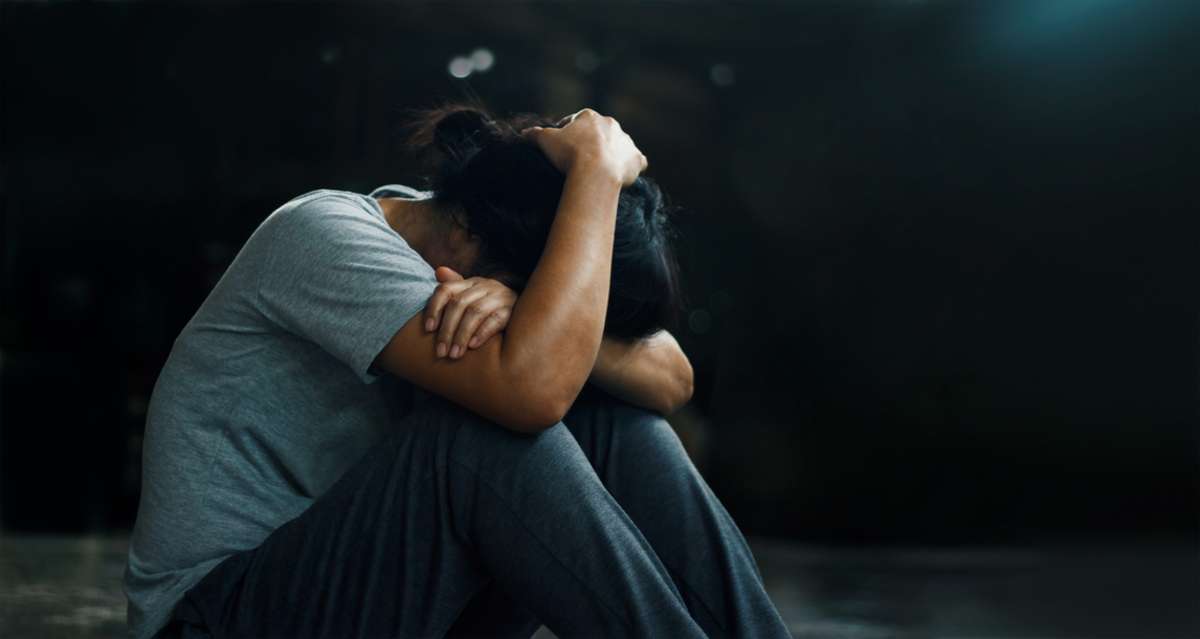It is safe, I think, to say that most people are vaguely familiar with post-traumatic stress disorder and some of its symptoms — it's certainly featured in the media, including films and shows, enough. Flashbacks and nightmares (intrusion symptoms), great efforts to avoid reminders of the trauma, and reactive symptoms like anger, always being on guard, and an overactive startle response are probably the most well-known of the PTSD symptoms.
The guilt and shame that can plague people with post-traumatic stress disorder isn't talked about that much, on the other hand, and research shows that these features of PTSD are also often overlooked in therapy. Though these symptoms aren't rare, their very nature means they're often suffered in isolation, where they fester and grow.

Guilt and shame are common PTSD symptoms
If you have PTSD — formally diagnosed or not — and you are tormented by guilt (which could also be described as self-blame), shame (a closely-related emotion that can be seen as negative feelings about who you are as a result of your actions or lack thereof), or gut-wrenching regret, you're not alone. People with PTSD from all causes often feel excessive guilt and shame, that is, guilt and shame that goes far beyond acknowledging any personal role they may have indeed played in causing pain.
Guilt and shame can rear their heads in many ways.
They can strike combat veterans whose jobs led them to take lives, as well as those who weren't able to protect their comrades. They can strike first-responders who forever wonder why they didn't "do more" to save lives, even if they realistically did everything in their power. They can strike people who were in road-traffic accidents, even if the crash wasn't in any way their fault. They can strike victims of domestic violence and sexual assault, who already so often face stigma from the outside world that is only amplified by their own inner voices. They can strike victims of mass shootings who just "froze", in a completely natural reaction, and later blame themselves for not stopping the shooter.
They can strike anyone who made it out of a horrendous situation alive where others didn't, in the form of survivors' guilt. They can strike anyone with PTSD who just isn't coping and feels they should be able to. Even just the fact that they were vulnerable and unable to do anything to stop the trauma can invoke guilt and shame.
Guilt and shame can be external, wherein the person is keenly aware of the stigmatization associated with their experiences (sometimes to unrealistic degrees, but sometimes not), or internal, wherein the person's chronic devaluation of self leads to a harmful and unhealthy sense of identity. It's possible to not feel you were to blame for the trauma but to still feel tremendous negative effects of shame because of the way society tends to react to people who lived through the trauma you did. This is especially true in the case of sexual violence.
What can you do to lessen unwarranted PTSD-related guilt and shame?
PTSD is often seen as a fear-based disorder, any many psychological approaches to treatment focus on this aspect of PTSD as well. Things like exposure therapy, wherein you process your fears in a safe setting to become desensitized to them over time (promoting better functioning) may not do anything at all for people who suffer from chronic guilt and shame.
It's further been uncovered that people who suffer from tremendous guilt and shame after experiencing trauma can often trace the origins of those feelings back to a far earlier point in time, such as early childhood. As an example, one study talked about the case of a man who suffered chronic guilt after escaping from the scene of a violent bank robbery. Someone else was injured, while he got away safely, and the man felt terrible guilt for getting away without helping others, to the point that he was convinced that the other person would have been safe if only he had stayed. On further inspection, he turned out to have been raised in a household that focused on altruistic behaviors — and his intuitive reaction at the time of the trauma had broken his own moral code.
Schema therapy, a kind of talk therapy that was originally developed as an expansion of the more well-known cognitive behavioral therapy but that also includes elements of many other approaches, can work very well for this purpose. The cycle of guilt and shame can be broken.
- Photo courtesy of SteadyHealth


Your thoughts on this